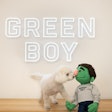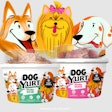Reports late last week that PetSmart and Petco were again considering a merger caught the attention of both the pet world and the investment industry. Given the potential for significant antitrust pushback to such a deal (purportedly the reason a similar transaction was dismissed by PetSmart last year), could this happen? And what would it mean for pet food brands and the pet owners who buy them?
The speculative deal, originally reported by Lauren Hirsch and Greg Roumeliotis of Reuters, would actually be PetSmart acquiring its smaller rival. Interestingly, in 2014, when PetSmart was being pushed by an activist investor to sell itself, it was supposedly looking to Petco as its buyer. (It instead opted for a buyout consortium led by BC Partners Ltd. That deal closed in March of this year.)
The question of who buys whom, if all the speculation turns into reality, is probably most important in terms of what the remaining stores, and brand, would ultimately be called. Just as with pet food brands, pet owners who shop at the “big box” pet stores have their favorite among the two big chains—in some cases determined by which pet food brands each chain carries. Petco especially, thanks to the “It’s All Natural” shop within its stores, has dramatically boosted the number of pet food brands it carries touting natural claims that consumers can’t seem to get enough of, though PetSmart also plays up its natural product focus.
Whether Petco is actually interested in being acquired by PetSmart is another point of speculation. Its private equity owners, TPG Capital and Leonard Green & Partners, registered for an initial public offering just a month ago. Hirsch and Roumeliotis reported that the owners are also exploring an outright sale of the retailer, including to other private equity firms, and “have now started informal talks with PetSmart in the hope of fetching a higher price for Petco,” according to sources. In fact, these sources said that no confidential information has yet been exchanged, meaning the purported talks may go nowhere.
This time around, rather than potential antitrust problems, BC Partners’ concern about acquiring Petco hinges on the company’s ability to integrate the smaller rival so soon after PetSmart itself was acquired, the Reuters writers reported. Yet, it’s difficult to imagine that US federal regulators wouldn’t pose antitrust questions. Together, PetSmart and Petco account for 20% of all pet product sales in the US, Packaged Facts says—a total of US$11 billion annually—and 30% of sales in the US pet specialty channel. That’s a large chunk of the market to be in the hands of one company.
In fact, that’s “enough of a market dominance that antitrust regulators probably will demand it ‘close a lot of stores,’” wrote Jonathan Berr of CBS MoneyWatch, quoting Howard Davidowitz, CEO of retail investment bank and consulting firm Davidowitz & Co. Earlier this year, Berr reported, Seth Basham, an analyst with Wedbush Securities, said “a PetSmart-Petco merger would increase market concentration in nine markets, a potential red flag for regulators.” Berr also cited Basham’s data that 50% of Petco stores are in a three-mile radius of at least one PetSmart store and 72% are in a five-mile radius. So, if the merger came to fruition, PetSmart would likely decide to close some stores anyway for business reasons.
Considering that Petco has more stores (1,400 vs. PetSmart’s 1,300) yet lower sales (US$4 billion vs. PetSmart’s US$7.1 billion), it stands to reason that the majority of stores closed would be Petcos. This could have a notable impact on pet food brands that derive significant sales from Petco or aren’t even in PetSmart—and could drive away pet owners who prefer Petco over PetSmart, among those who have a choice. In the end, it could present a worrisome decline in distribution outlets and, thus, sales for some brands.
If this deal comes to pass, the biggest winners may be independent pet specialty stores, which have arguably always been able to offer more personalized, knowledgeable service than the big-box stores, including knowledge and recommendations of pet foods. Also coming out ahead would be pet food companies that promote exclusive distribution in independent pet stores as part of their brands. This often includes more niche, “boutique” pet food brands that can’t get shelf space in pet chain stores or see their affiliation with independents as a key selling point and differentiator.


















